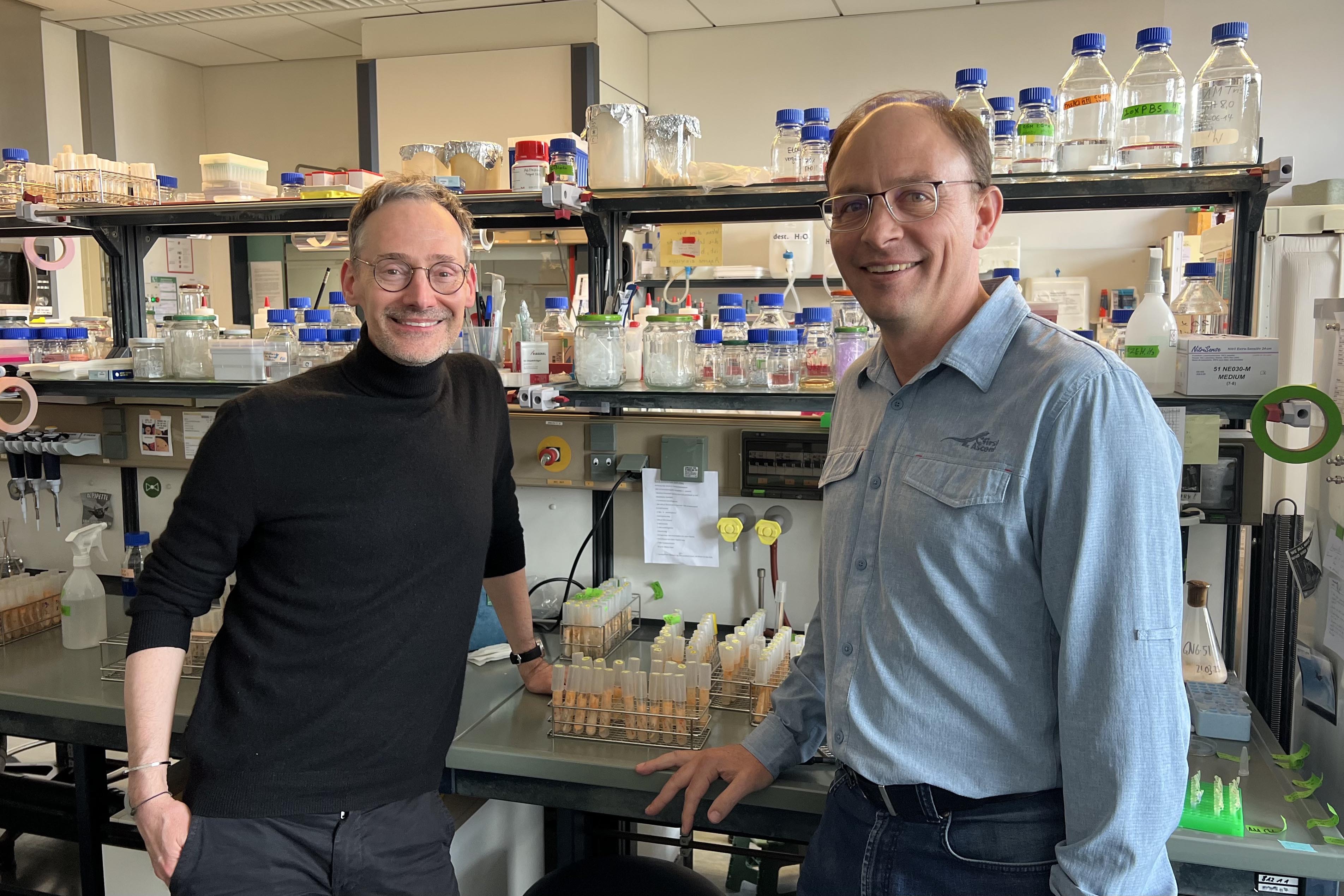Many roads lead to Braunschweig: A research visit to TUBS and other research institutes 2023-05-03
Professor Bernard Slippers recently visited the Fungal Genetics lab of Prof André Fleissner in the Department of Genetics of the Technical University of Braunschweig (TUBS).
The visit was stimulated by a presentation at the IUFRO Division 7 meeting in Lisbon, Portugal in September 2022 by PhD student, Anne Oostlander. Anne and André collaborated with colleagues at the Swedish University of Agricultural Sciences in Sweden to develop a reliable sporulation technique and a transformation system for Diplodia sapinea. This fungus is a serious pathogen of Pinus trees in many parts of the world, including in South Africa. This pathogen has been of increasing concern in Europe in recent years where it appears to be moving northwards, likely due to climate change, causing disease outbreaks. Prof. Slippers and other researchers at FABI has a long-standing research interest in D. sapinea, as well as many other Botryosphaeriaceae. The Botryosphaeriaceae are widespread pathogens causing dieback, cankers and death of trees when they are under stress. They are of increasing importance due to climate change.
Bernard spent the week learning about the techniques used on D. sapinea, and planning a follow-up project on related Botryosphaeriaceae. He also enjoyed learning about the fascinating world of genetics of the model organism Neurospora crassa, for which Prof. Fleissner’s lab is well known globally. The work in the lab also extends to plant pathogens such as Botrytis cinerea, including fascinating cross-species communication and behavioral influences between these fungi. More recently the lab also started to study phyllosphere microbiomes and the interactions amongst micro-organisms on this surface. The warm welcome and stimulating discussions with the lab members on a wide range of topics made for a very pleasant visit.
Bernard also had the opportunity to present his research to an audience from TUBS and other nearby research institutions. He visited colleagues working on mycological diversity, forest pathology and phytopathology more generally at the Julius Kühn-Institut (JKI). Here he had discussions with Dr Rasmus Enderle and ex-FABIan Dr Wolfgang Maier, as well as their colleagues. Bernard furthermore had the opportunity to visit the headquarters of the global seed company KWS, where Prof. Kerstin Krüger (UP and FABI Extra-ordinary Professor) is based. During the visit to KWS he could also meet up with Dr Rene Heim, who is involved in the FABI Satellite Lab in Remote Sensing of Plant Disease, and now based at the Institute of Sugar Beet Research (IfZ) in Gottingen. A concerning, but extremely interesting visit was to dying forests in the Harz mountains, which illustrate widespread and devastating effects of climate change on European forests.
There is rich opportunity to build on the collaboration started with Prof Fleissner and his students, as well as the numerous connections in and around Braunschweig. Indeed, many roads seem to lead to Braunschweig with rich future opportunities.









